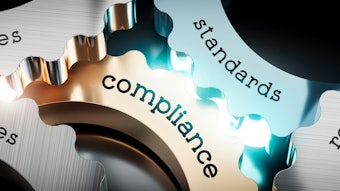
Physicians in the United States earn high salaries, but they also pay higher taxes. However, many physicians are unaware about tax deductions that can benefit them. Tax deductions are excellent ways to reduce taxes and save money. In addition, doctors need to understand when they may have specific tax obligations, such as employment taxes. This paper will help you identify the tax deductions for physicians along with some tips and suggestions on how to maximize them.1
Federal Income Tax Deductions
Doctors need to report their income, including earnings from their medical practice, as part of their annual income tax return. They need to ensure accurate reporting of all sources of income, including salary, bonuses and any income from investments or side gigs.
Business Expenses: Doctors who are self-employed may be eligible to deduct certain business expenses related to their medical practice. Keeping detailed records of these expenses is crucial for accurate tax reporting. They need to identify potential tax deductions related to your profession, such as expenses for continuing education, professional memberships and necessary work-related expenses.2
Operating expenses: Self-employed doctors purchase office equipment, supplies, computers, office rent, utilities and building upkeep, among other things. Purchasing medical equipment and devices can often be more expensive than equipment used in other businesses, and thus, will provide prime tax benefits. Any relevant expenses connected with your practice can be deducted, offsetting taxable income. To ensure you can take all your eligible expenses, doctors must carefully document these costs.
Professional Dues: As a requirement for practicing medicine, doctors must pay certain professional dues and licensing fees. Such expenses include medical license renewal, membership fees, professional education costs, professional development, and subscriptions to medical publications.
Health Care Premiums: If you are self-employed and you pay for your own health insurance, such amounts are deductible business expenses. Health Savings Accounts (HSAs) allow you to make tax-free contributions to cover your medical expenses. HSAs can be beneficial for both healthcare costs and tax planning.
Travel: Travel related to your medical practice, such as meetings, conferences and other events are generally deductible. Theses costs can include airfare, lodging and car rentals.
Mortgage Interest: Costs associated with your home may be deductible. For example, the interest you pay on your home mortgage and property taxes on your house are deductible.
Staff Costs: If you run your own practice, the costs associated with your employees are also deductible. You can deduct wages and salaries plus other costs related to their employment, such as employee benefits.
Charitable Contributions: Charitable donations are deductible. For contributions other than cash, the amount of the deduction can be as high as the fair value of donated property. Charitable contributions can offset a substantial part of your taxable income.
Retirement Contributions: Doctors may have various retirement savings options, such as 401(k) plans or Individual Retirement Accounts (IRAs). Contributing to these accounts can have tax advantages.
Tax Credits: There are various tax credits available, such as the Child and Dependent Care Credit or the Earned Income Tax Credit, which doctors may be eligible for depending on their personal circumstances.
Self-Employment Tax: Many doctors are self-employed, which means they are responsible for paying both the employer and employee portions of Social Security (12.4% Social Security tax on up to $168,600 of your net earnings for the year 2024) and Medicare taxes (2.9% on entire net earnings). This is commonly known as self-employment tax.
State Income Tax Laws
In addition to federal taxes, doctors need to be aware of state income taxes. State tax laws vary, so it's important to understand the tax implications in the specific state where they practice medicine.
Nine states where physicians don't have to pay state income taxes:3
The average physician pays $12,952 a year in state taxes, but in nine states, physicians can avoid paying any state income taxes, according to data updated in 2023 from AARP. Here are the nine states with no income tax:
- Alaska
- Florida
- Nevada
- New Hampshire
- South Dakota
- Tennessee
- Texas
- Washington
- Wyoming
Tax Planning Strategies
Doctors may explore tax planning strategies to optimize their financial situation, such as income splitting, timing of deductions, and other tax-efficient practices.
Business Structure: If a physician operates as a sole proprietor or has their own practice, they should consider the tax implications of their business structure, such as a sole proprietorship, partnership, LLC, or corporation.
Employee Benefits: Understand the tax implications of employee benefits, such as health insurance, retirement plans, and other perks that you provide to your employees. See the brief discussion above.
Warning – Refinancing Your Home: When buying or refinancing a home, only the interest expense on the first $750,000 of your mortgage. So if your purchase a home and finance $1 million of the costs with a mortgage, you will only be able to deduct the interest expense paid on $750,000 of the loan amount. If you decide to borrow on the equity in your home (home equity loan), and you have not reached the $750,000 limit, then the interest paid is deductible, but only if you use the money to make home improvements.
Manage Your “Qualified Business Income”: Qualified business income provides a special 20 percent deduction of qualified income for eligible taxpayers. The QBI deduction is quite complicated and would likely result in the need for a tax professional. However, if you qualify, the deduction can be very significant.
Diversify Your Investments: Diversify your investments by spreading them between taxable, tax-free and tax-deferred investments. It is important to be able to determine how these various types of investments provide a return on your investment. The taxability of any investment affects your rate of return. Allocating your investments across different accounts, industries, and other categories will reduce your chances of serious financial loss.
Conclusion
Physicians, like any professionals, must keep accurate records of income and expenses, stay informed about tax law changes, and seek professional advice to ensure compliance and optimize their tax situation. If you need more specific information, you may want to consult with a tax advisor or accountant familiar with the healthcare industry.
References:
1. Arthur W. Andrews Professor of Law, James E. Rogers College of Law, University of Arizona, Tucson, Arizona. Thank you to the Department of Urology at the University of Pittsburg for inviting me to your speaking series . I am grateful for the opportunity to educate doctors on topics that affect them both personnally and professionally. I appreciate your support in that endeavor. This paper is taken from remarks given during the speaker series.
2. Brody, Randall, "Valuable Tax Deductions for Physicians Need to Know,” Tax Samaritan, August 17, 2022.
3. McKenna, Jon, "Medscape Physicians and Taxes Report 2023: Are You Paying Too Much?," Medscape, July 13, 2023. https://www.medscape.com/slideshow/2023-tax-report-6016531
4. Waggoner, John, "9 States With No Income Tax," March 3, 2023. https://www.aarp.org/money/taxes/info-2024/states-without-an-income-tax.html












